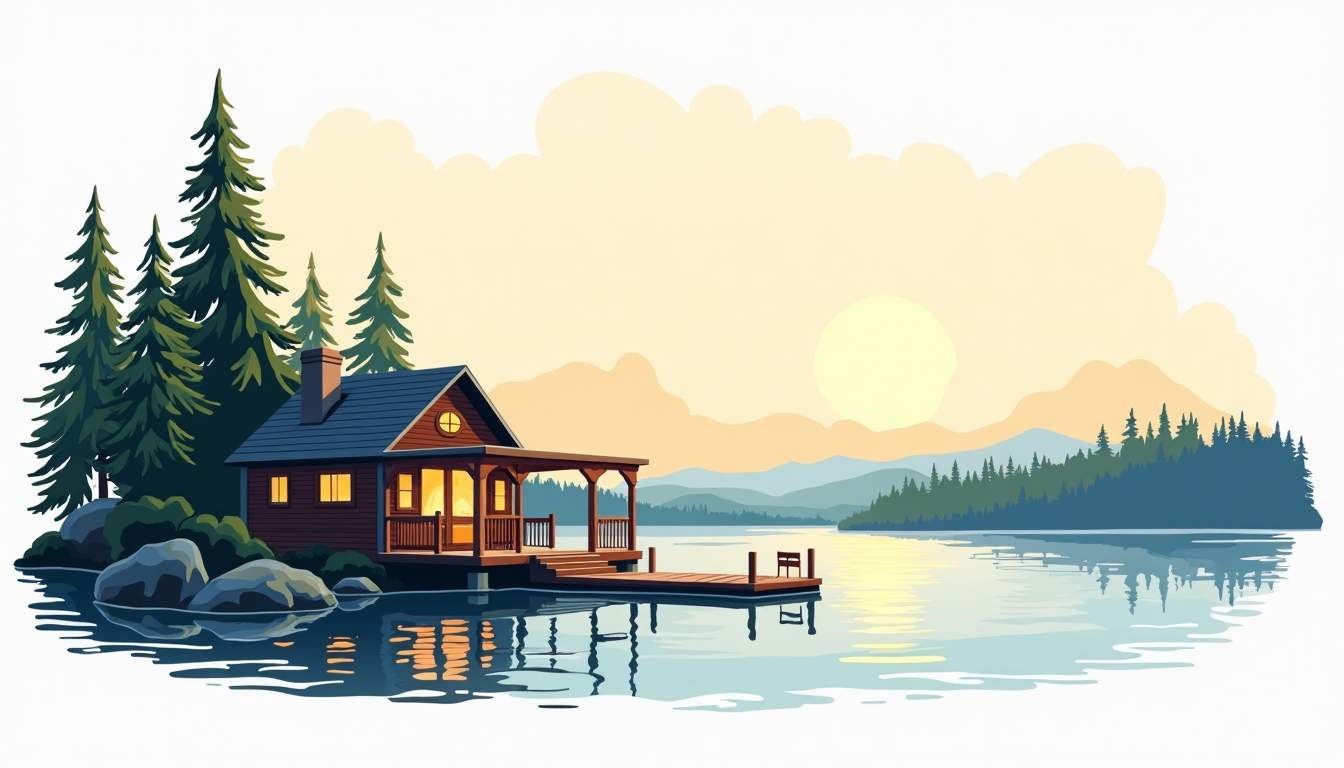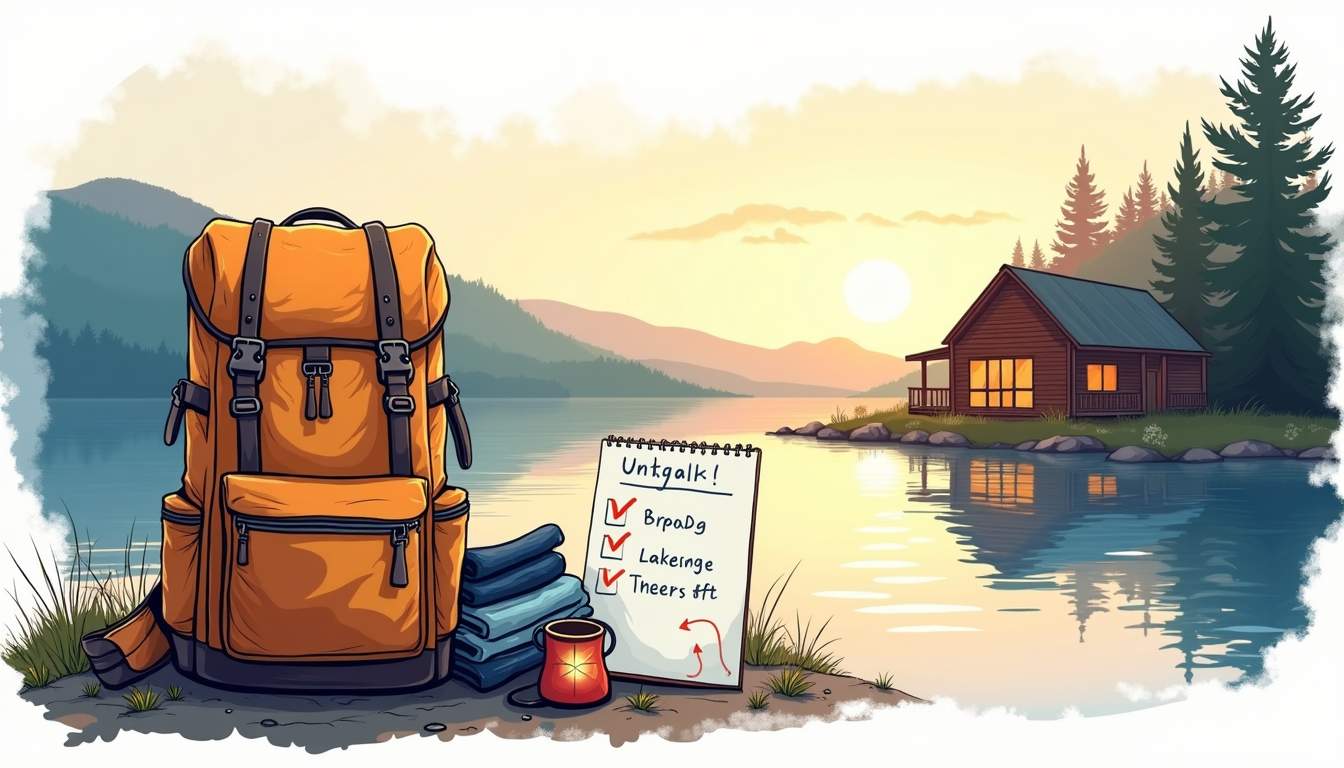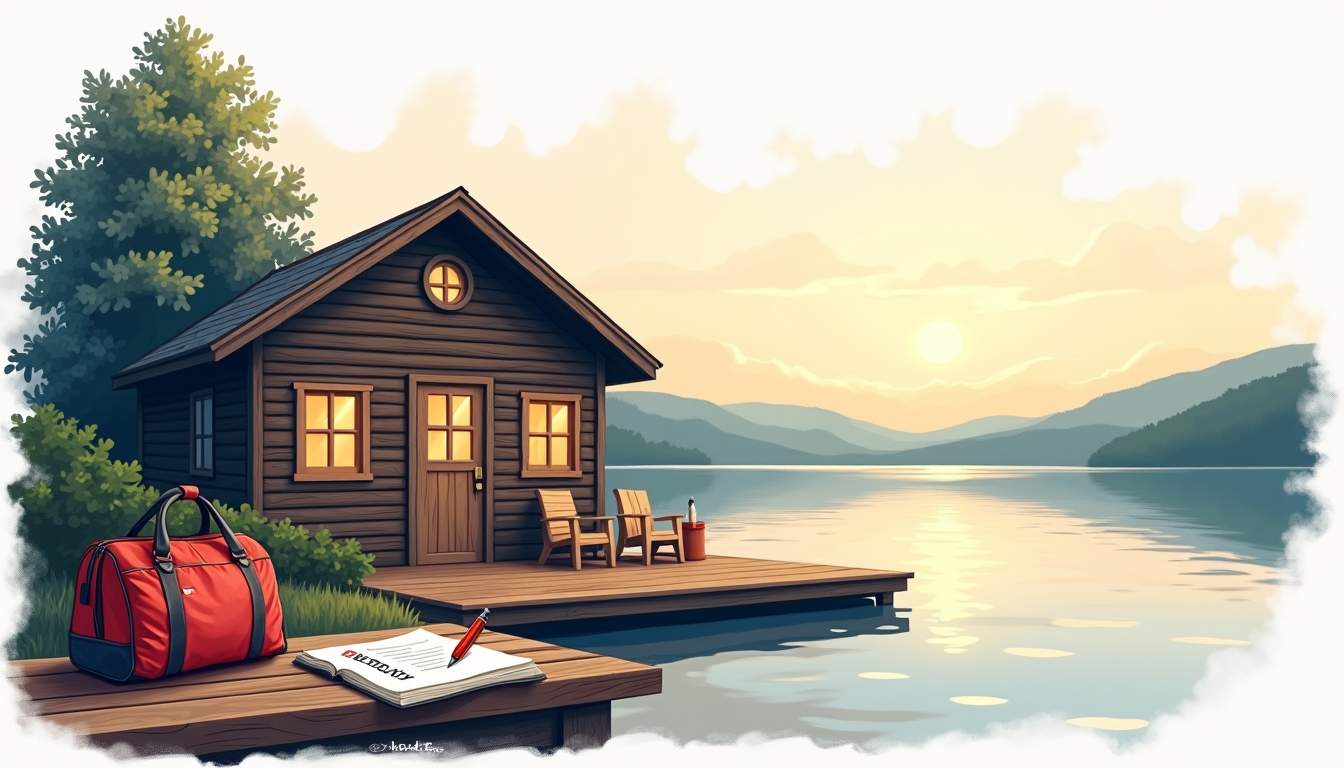
Finding a private retreat that includes lake privileges changes a weekend escape into a small island of calm: canoe gliding, lakeside reading nooks, and the kind of sunset that slows conversations. This guide lays out practical steps to locate the right property, evaluate access and rules, and secure a booking that matches expectations — all without sacrificing privacy or safety.
Lake access adds a sensory richness to a getaway that few other amenities match. The quiet lapping of water, opportunities for morning swims or sunset paddling, and the visual expanse of water framed by trees or mountains all contribute to a restorative atmosphere. For anyone seeking a break from urban noise, a lakefront or lake-adjacent rental offers both activity and stillness.
Beyond atmosphere, lake privileges often mean practical benefits: private dock use, reserved mooring spots, or permission to launch small watercraft. Those conveniences can turn a simple cabin into a multipurpose retreat suited to couples, families, or small groups with varied interests in fishing, birdwatching, or watersports.
Start with specialized listing sites that allow filtering for waterfront, dock access, or lakefront. Vacation rental platforms, local property manager websites, and community Facebook groups are useful, but niche directories focused on lakeside properties often yield higher-quality matches. Search with realistic radius filters — a property billed as “near the lake” might be a short hike away rather than directly accessible.
Local real estate agents who handle vacation rentals can provide leads on off-market properties or those managed by smaller owners. Municipal or homeowner association websites sometimes publish lists of permitted rentals or public-private access agreements, which are especially helpful in communities where lake use is regulated.
Think about the style of retreat that fits the intended vibe. A rustic cabin emphasizes coziness and often sits closer to the shore, whereas a modern home might offer expansive windows and luxury finishes but be set back from the water. Cottages can strike a middle ground, offering both charm and amenities. Each type brings different expectations regarding privacy, maintenance, and the kind of lake privileges included.
“Lake privileges” is an umbrella term that can mean anything from shared access to a community beach to exclusive dock use. Common access types include private dock ownership, shared community docks, deeded lake rights, and community beach access. The level of exclusivity has practical implications: launch permission for kayaks versus reserved slips for motorboats, or unrestricted shoreline use versus regulated swimming zones.
Clarify whether access is transferable to guests and how it's enforced. Some owners allow only registered renters to use the dock, while community rules may limit guest numbers, impose quiet hours, or restrict watercraft types. If privacy is paramount, prioritize properties with deeded or private access over those with community-shared areas.
Lakes change with the seasons — water levels fluctuate, docks may be removed in winter, and algae or aquatic plant growth can affect swimming. Ask about seasonal access policies and recent conditions. In some regions, insects or algal blooms are a predictable concern; check local advisories or speak to the owner about past patterns and mitigation measures like dock treatments or screened porches.
Prepare a short checklist of questions to avoid surprises. Confirm the exact nature of lake access (private dock, shared dock, deeded rights), whether watercraft are included or rentable nearby, and how emergency access works in case of injury on the water. Ask about parking for trailers if a boat is part of the plan, and whether the property has life jackets, safety gear, or a first aid kit suitable for water activities.
Other practical queries include internet and cell signal strength, garbage and recycling rules, proximity to stores or medical facilities, and clear cancellation terms related to weather or water conditions. A transparent owner or manager will answer these thoroughly and provide photos of the dock, shoreline, and pathways to the water.
Request written confirmation of permissions regarding the lake: a clause in the rental agreement, a copy of the deeded access language, or HOA rules outlining guest privileges. Photograph records can be helpful too — ask for current images of the shoreline, dock, and watercraft included. Having documentation reduces disputes and ensures expectations are aligned.
Water brings inherent risks. Verify whether the property carries liability insurance covering dock use and watercraft, and whether renters are required to sign waivers. Ask about depth and bottom conditions near the shore, marked hazards, and local emergency services response times. If the lake is known for sudden storms or strong currents, consider properties with sheltered coves and solid anchor points for small boats.

For families with children or inexperienced swimmers, prioritize properties that provide life jackets in multiple sizes, clear access points with gentle slopes, and gates or fencing if the shoreline is steep. Consider bringing a portable alarm or whistle for group outings and plan a safety briefing before any water activities.
Pricing for lake-privileged rentals varies with location, season, and the exclusivity of access. High-demand weekends in summer or peak foliage season will command premiums, while midweek stays and shoulder seasons often offer better value. Owners sometimes discount extended stays or last-minute openings to fill gaps in the calendar.
When negotiating, be clear about non-negotiable needs like dock use or parking for a boat. Offer to provide a security deposit or references for groups that plan to bring watercraft or large numbers of guests. In cases where the owner charges extra for watercraft or cleaning of sand and lake debris, request these fees up front to avoid surprises.
Use trusted booking platforms or pay via credit card when possible; these methods provide transaction records and dispute resolution. Beware of owners who insist on wire transfers or cash-only payments without contracts. Verify the identity of the owner or manager, check previous reviews, and confirm property details via multiple channels. If a deal looks too good to be true, it probably warrants extra scrutiny.
Secure the booking with a clear contract that outlines access rights, guest limits, dock and boat usage, and cancellation policies. Read the cancellation clause carefully: weather-related cancellations are common for water-based trips, and some owners will offer credits for rescheduling rather than refunds. Purchase travel insurance if the trip hinges on specific dates or costly boat rentals.
Coordinate arrival and departure times that work with any required dock setup or boat launches. Some properties have strict check-in windows to align with owner schedules, while others offer self-check-in. Confirm check-out requirements for shoreline cleanup to ensure forfeiture of any security deposit is unlikely.
Packing for a lake retreat means balancing leisure with safety. Essentials include appropriate footwear for slippery docks and rocky shorelines, quick-dry clothing, sun protection, and insect repellent. Bring towels and a plastic bin for wet suits or swimsuits to avoid bringing sand into the rental. If planning to fish, verify local licensing requirements and bring the proper gear and permits.

Respectful use of a private shoreline is as important as following posted rules. Avoid loud music late into the night, control pets around nesting areas, and clean up any food scraps that attract wildlife. If using boats, follow speed limits and no-wake zones and avoid anchoring in areas with fragile aquatic vegetation.
Ask the owner or manager for recommendations on boat rentals, bait shops, grocery delivery, or local guides for fishing or birdwatching. Renting a kayak, paddleboard, or pontoon locally can be more economical than transporting personal watercraft, and local operators often provide safety briefings that are tailored to the lake's conditions.
Confirm that the rental agreement lists the lake privileges and that any additional fees are paid. Verify directions to the property, parking instructions, and contact information for the owner or a local emergency contact. Make copies of any required permits or waivers and place them in an easily accessible spot during the stay.

Leave a note for the next guest if time allows, especially about quirks like how to secure the dock, where life jackets are stored, and paths that are safer after rain. A few minutes of preparation can preserve privacy, safety, and the enjoyment of the lake for everyone involved.
A private retreat with lake privileges combines the pleasures of water recreation with a tranquil, secluded setting. Finding the right property takes a mix of focused searching, clear questions, and careful attention to safety and legal details. When the paperwork is in order and expectations are aligned, the result is a getaway that refreshes and reconnects.
Respect for the environment and for fellow residents preserves access for future stays. With the right preparation — from verifying access rights to packing for variable conditions — the lake becomes more than a backdrop: it becomes the central part of a memorable escape.
Ready to experience luxury lakefront living in a premier gated community? Tennessee National offers exclusive waterfront amenities, including a private marina and scenic nature trails, all set within breathtaking Tennessee landscapes. Whether you seek a move-in ready home or a custom build, our resort-style lifestyle blends tranquility with exceptional recreation. Schedule a Private Tour today and start making lasting memories at Tennessee National.